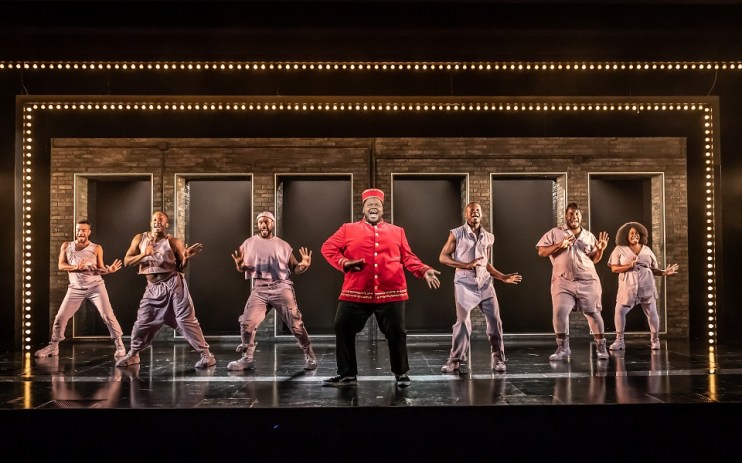A Strange Loop, Barbican, review: New York’s smash hit doesn’t land in London

A Strange Loop review and star rating: ★★★
A Strange Loop won every Best Musical award in New York, and was nominated for 11 Tony Awards. It was a New York Times Critics’ Pick and won the 2020 Pulitzer Prize for Drama; unusual for a musical, the accolade was previously taken by Hamilton. The musical closed in January on Broadway, and now writer Michael R Jackson’s piece has transferred to the Barbican Centre.
Buzz had been building around A Strange Loop for months ahead of its premiere, and in a way that felt unusually strong for a new piece of writing not yet staged in the UK. Could it really be that good? Marketed as a meta musical, the piece reflects the real life experiences of Jackson when he was working as an usher at the Lion King musical in New York City. The titular Usher, the central protagonist, is a young gay man who is systematically oppressed by society, whether through the way he is treated on sex apps like Grindr, or by what he calls the “white gaytriarchy.”
A handful of performers play intrusive thoughts in his mind, from his daily self loathing to a “financial sidekick,” all of which serve to further crush his confidence as he tries to write his big break for the stage.
I must acknowledge that I am a white critic writing about a seminal black musical, and that fact – and the fact that many other reviews of this piece will be written by people who cannot relate directly to the themes – makes me uncomfortable. Nevertheless, A Strange Loop didn’t live up to the hype for me.

It’s filled with cultural references that just won’t land with UK audiences, such as recurring mentions of US actor Tyler Perry, which form a key part of the story. Most Brits don’t know who Tyler Perry is and these references take you out of the story.
Worse, the central meta concept of the ‘strange loop’ of repeating circumstances doesn’t reach the physical, mental or figurative heights that would make this a ground-breaking piece of work, instead feeling like a laboured metaphor for someone who’s stuck in life.
There’s value to that: Jackson stages interesting conversations around stigmatised topics, such as penis size-shaming, and body shaming more broadly, that harness Usher in his mental cage. He is oppressed by his family and his religion. Stephen Brackett’s direction is often tenacious; during one imaginary scene in which Usher goes on Grindr, a series of spiteful, shaming men prowl around him in a way that feels seriously creepy. Topless black male actors, playing men who assume uncomfortably dominant positions of power over Usher, declare that they are white guys in a thrilling subversion of power. A sublime set piece near the end takes us into a world of gospel music that shows how family settings, and other supposedly utopian scenarios, can be saccharine but not sweet.
It’s an audacious set of themes, with a powerhouse lead performance by Kyle Ramar Freeman, who also led the cast on Broadway. But the takeaway is how fascinating it is that a smash hit show in New York can feel middling in London. Some of the reasons, like the cultural references, are obvious; more broadly, Americans do tend to have a different sense of humour to us.
The archetype of the high-soaring individual, raised into a challenging environment and breaking free, is also the sort of individualistic heroic arc that feels distinctly US and not very British. Nor is the conclusion, which tries to sum too much up instead of leaving us with questions. Oh, and one hour forty minutes straight through is too long: this needs an interval. But honestly, asides from these parts, the gulf in reception on either side of the pond is mystifying.
A Strange Loop plays at The Barbican until 9 September
